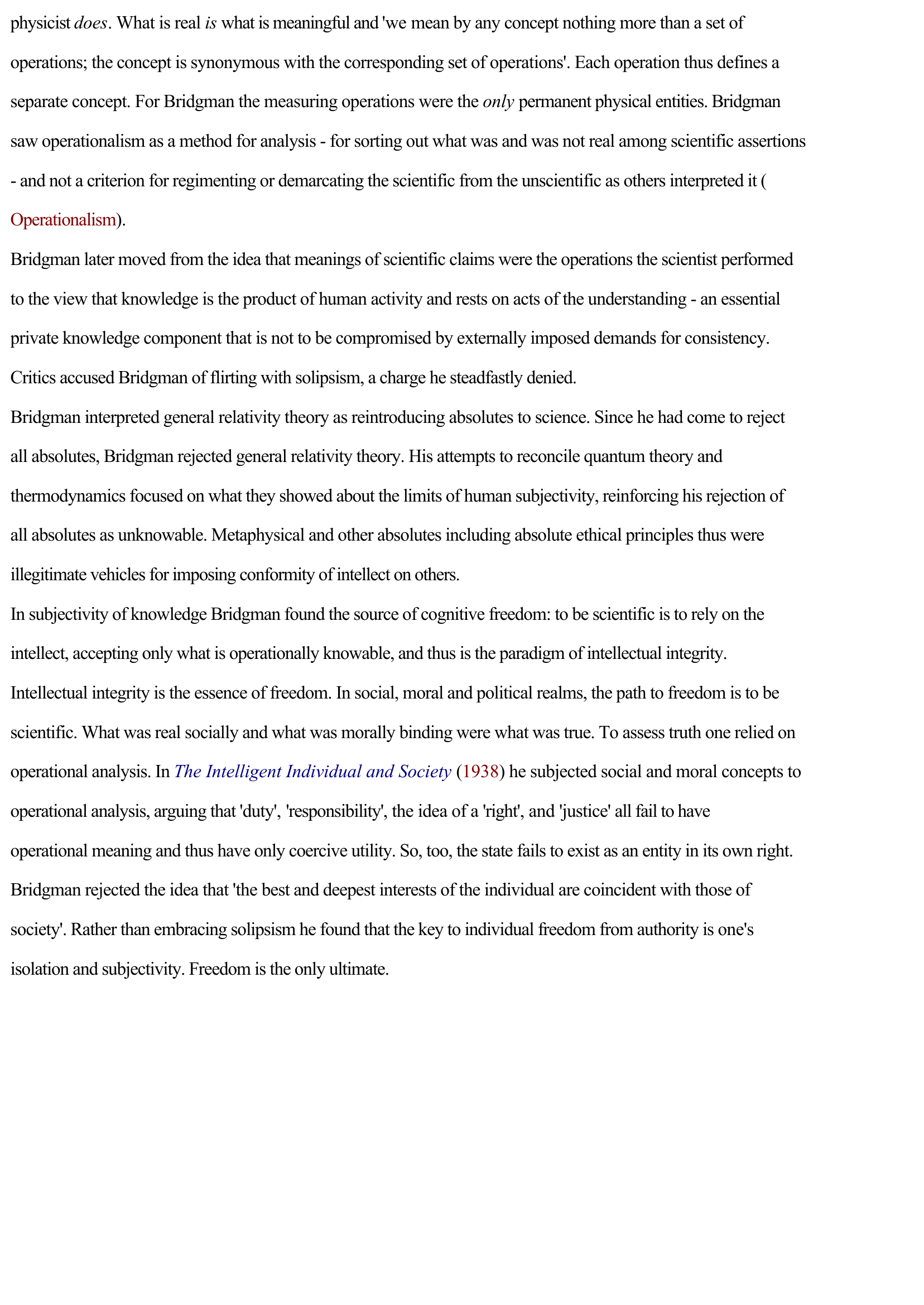Bridgman, Percy William
Publié le 22/02/2012

Extrait du document
«
physicist does .
What is real is what is meaningful and 'we mean by any concept nothing more than a set of
operations; the concept is synonymous with the corresponding set of operations' .
Each operation thus defines a
separate concept.
For Bridgman the measuring operations were the only permanent physical entities.
Bridgman
saw operationalism as a method for analysis - for sorting out what was and was not real among scientific assertions
- and not a criterion for regimenting or demarcating the scientific from the unscientific as others interpreted it (
Operationalism ).
Bridgman later moved from the idea that meanings of scientific claims were the operations the scientist performed
to the view that knowledge is the product of human activity and rests on acts of the understanding - an essential
private knowledge component that is not to be compromised by externally imposed demands for consistency.
Critics accused Bridgman of flirting with solipsism, a charge he steadfastly denied.
Bridgman interpreted general relativity theory as reintroducing absolutes to science.
Since he had come to reject
all absolutes, Bridgman rejected general relativity theory.
His attempts to reconcile quantum theory and
thermodynamics focused on what they showed about the limits of human subjectivity, reinforcing his rejection of
all absolutes as unknowable.
Metaphysical and other absolutes including absolute ethical principles thus were
illegitimate vehicles for imposing conformity of intellect on others.
In subjectivity of knowledge Bridgman found the source of cognitive freedom: to be scientific is to rely on the
intellect, accepting only what is operationally knowable, and thus is the paradigm of intellectual integrity.
Intellectual integrity is the essence of freedom.
In social, moral and political realms, the path to freedom is to be
scientific.
What was real socially and what was morally binding were what was true.
To assess truth one relied on
operational analysis.
In The Intelligent Individual and Society (1938 ) he subjected social and moral concepts to
operational analysis, arguing that 'duty' , 'responsibility' , the idea of a 'right' , and 'justice' all fail to have
operational meaning and thus have only coercive utility.
So, too, the state fails to exist as an entity in its own right.
Bridgman rejected the idea that 'the best and deepest interests of the individual are coincident with those of
society' .
Rather than embracing solipsism he found that the key to individual freedom from authority is one's
isolation and subjectivity.
Freedom is the only ultimate..
»
↓↓↓ APERÇU DU DOCUMENT ↓↓↓
Liens utiles
- Bridgman, Percy Williams - physicien.
- La Pensée et le mouvant de H. Bergson « sur le pragmatisme de William James » - commentaire
- Beaucoup de bruit : une comédie de William Shakespeare
- litterature.pdf : The play Macbeth was written by William shakespeare
- VATHEK, CONTE ORIENTAL de William Beckford : Fiche de lecture

































